Discover the Breakfast Drink That Lowers Blood Pressure

So, what's the secret breakfast drink that could help you keep your blood pressure in check? It's none other than beet juice! Sounds a bit unexpected, right? Beet juice, often dubbed as a super-juice, has been gaining popularity not just among health enthusiasts but also in the world of sports energy drinks. It's got this natural compound called nitrates that work wonders in relaxing blood vessels and improving blood flow.
When you drink beet juice, these nitrates turn into nitric oxide in your body, helping to widen those blood vessels. This process can lead to a drop in blood pressure, which is pretty neat if you ask me. This isn't just talk—there's solid evidence behind it. Research even shows that people who drank a cup of beet juice daily saw their blood pressure levels improve quite significantly.
- Unveiling the Magic Drink
- How It Affects Blood Pressure
- Nutritional Benefits
- Incorporating It into Your Routine
Unveiling the Magic Drink
Alright, let's talk about beet juice—the unexpected hero in the world of healthy beverages. You might know beets for their earthy taste and vibrant color, but when turned into juice, they pack a punch that's perfect for keeping your blood pressure in check.
What makes this breakfast drink so magical? It's all about the nitrates. Beets are chock-full of these natural compounds, which your body converts into nitric oxide after consumption. This nitric oxide is like a traffic cop for your blood vessels, helping them relax and expand, which in turn, lowers blood pressure.
For those of you wondering how serious this is, check out what some studies found. Participants who drank beet juice saw a noticeable dip in their blood pressure, often within just a few hours. That's pretty cool, right? It means that including beet juice in your morning routine could make a tangible difference in your heart health.
Here's a little extra nugget of info for you: beet juice isn't just for the health buffs. Athletes love it because the same properties that help regulate blood pressure can also enhance endurance. More oxygen flows to your muscles, which can boost performance. So, it's not just a sports energy drink hype—there's real science and benefits backing it up.
If you haven't tried it yet, you might want to start blending this magic drink into your morning lineup. It's simple and brings a load of benefits, especially if you're looking to boost your health and energy levels without any complicated supplements.
How It Affects Blood Pressure
Beet juice isn't just colorful; it's packed with health benefits, especially for those who keep an eye on their blood pressure. The magic lies in its natural nitrates. These nitrates work their magic by converting into nitric oxide once they're in your body. Nitric oxide is like the unsung hero—it helps dilate your blood vessels, allowing blood to flow more easily and reducing the pressure on those vessel walls.
This isn't just a trendy claim. Take this cool fact: a study showed that individuals who consumed beet juice daily experienced a noticeable drop in their blood pressure. We're talking systolic blood pressure dipping by about 4-5 mmHg on average. It's not life-altering but definitely a significant step toward heart health!
Engaging with beet juice regularly, alongside a healthy lifestyle, can support your body's natural ability to maintain healthier blood pressure levels. Imagine trading a surgary breakfast drink for a glass of nutrient-rich beet juice and doing a lot of good for your heart. It’s a simple step that fits right into a heart-smart breakfast routine.
- Add beet juice to your diet by mixing it with other juices for a milder taste.
- Try it straight up if you're feeling brave, or pop it into a smoothie for that blood pressure perk without the full beet flavor.
- Consistency is key—incorporate it into your weekly routine for the best results.
With these pointers, diving into the beet juice trend might just be one of the easiest ways to give your heart and blood pressure the boost they deserve. After all, starting the day with a healthy beverage like beet juice might just be your ticket to feeling great and staying on top of your game!

Nutritional Benefits
Beet juice isn’t just about lowering blood pressure; it’s a powerhouse of nutrients that can give you a boost in several ways. If you're looking for something to kickstart your day better than any regular sports energy drink, this might just be your go-to drink.
First off, beet juice is packed with vitamins and minerals. It’s got vitamin C, fiber, potassium, and manganese. Potassium, in particular, is crucial because it helps balance the sodium in your body, which ties back nicely to keeping your blood pressure in check.
- Vitamin C: Boosts your immune system and helps in healing wounds.
- Fiber: Good for digestion and keeps you feeling full longer.
- Potassium: Works wonders for heart health by helping muscles, nerves, and joints function properly.
- Manganese: Supports bone health and helps metabolize fats and carbohydrates.
Beyond these, beet juice also contains antioxidants known as betalains. These compounds not only give beets their rich color but also provide anti-inflammatory and detoxifying benefits. It’s like having a good cleanse every time you drink it!
Here's a handy little table showing how beet juice compares in terms of nutrition to a typical sports energy drink:
| Nutrient | Beet Juice (1 cup) | Sports Drink (1 cup) |
|---|---|---|
| Calories | 75 | 50 |
| Vitamin C | 13% of RDI | 0% of RDI |
| Potassium | 442 mg | 30 mg |
| Sugar | 12 g | 14 g |
So, when you're looking at those nutrition labels, beet juice clearly takes the prize in delivering nutrients without all the extra sugar you find in most energy drinks. It's like getting your morning energy boost with a side of health perks. Not bad for a glass of juice, right?
Incorporating It into Your Routine
Adding beet juice into your morning lineup doesn't have to be complicated. A small glass of this vibrant juice can easily find its place alongside your traditional breakfast picks.
First off, you can simply drink it straight. Pour yourself a glass of beet juice—you can either buy it ready-made from the store or make it fresh at home with a juicer. If you're making it, mix it up with some apple or carrot juice to mellow down its earthy taste. This combo not only tastes good but also carries extra nutrition benefits.
For those busy mornings, beet juice can become a part of a quick, nutritious smoothie. Just toss in a banana, some berries, a spoonful of yogurt, and a splash of beet juice into your blender. It's a quick way to fill your day with energy and get that blood pressure-friendly kick.
- Morning Routine: Have a small glass with breakfast.
- Pre-Workout: Consume beet juice about 2 hours before exercising for a potential performance boost.
- Blended Smoothie: Combine with fruits like bananas or berries for a flavorful smoothie.
Remember, starting with around 250ml of beet juice per day is often recommended to begin experiencing benefits. But keep in mind, while beet juice is great, it's not a magic bullet. Keeping it part of a balanced diet and a healthy lifestyle is where it's at. Beets contain natural sugars, so it's best consumed in moderation, especially for those watching their sugar intake.

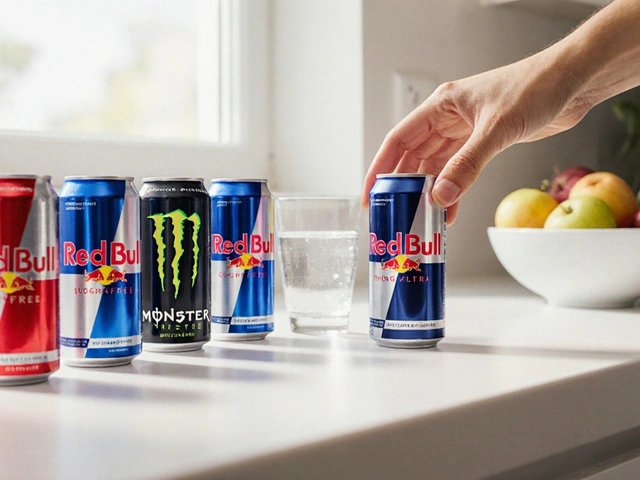
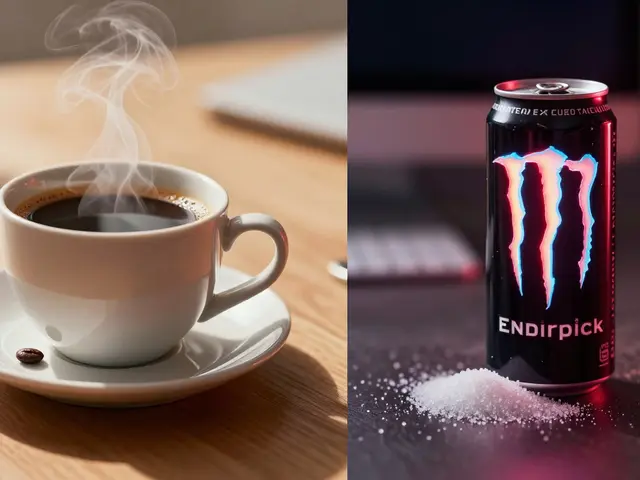
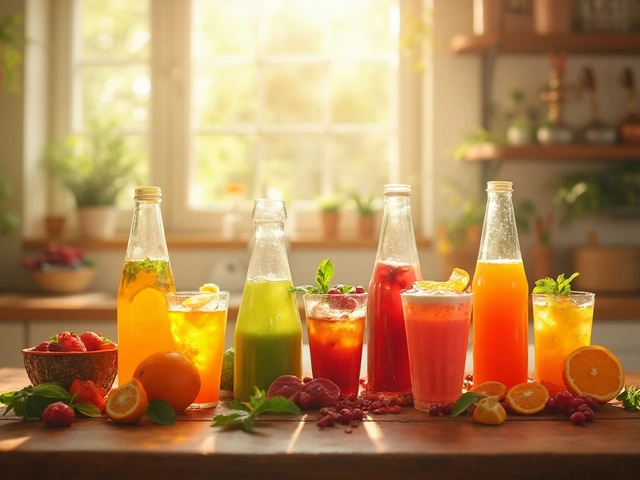
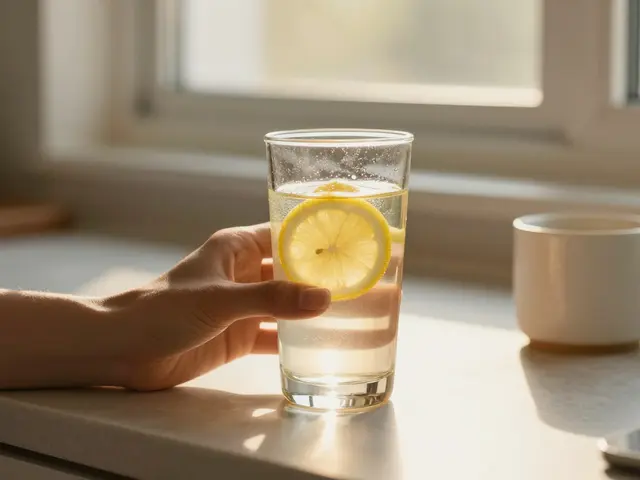
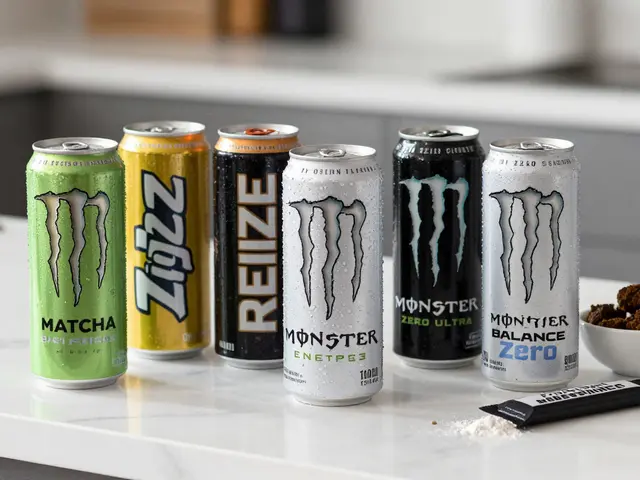
Comments (10)
Tarun nahata
18 Jul 2025
Wow, this sounds like a truly game-changing discovery! I mean, who wouldn’t want a breakfast drink that not only boosts your energy but also helps keep your blood pressure in check? It’s like a magic potion waking up with a purpose.
The article hints at some 'key nutrients'—I’m guessing it’s packed with antioxidants or something equally powerful. Incorporating something like this could totally revamp the morning routine for so many people.
Also, the fact it doubles as a sports energy booster is fantastic for active folks. Imagine kicking off your day with a burst of vitality that supports your heart while energizing your entire body. I’m sold!
Has anyone tried this drink or know what exactly it is? I’m curious about the taste and where to get it. Could be a new staple in my diet for sure. Also, anyone else feeling inspired to overhaul their morning rituals after reading this?
Aryan Jain
18 Jul 2025
Hold on a second. Isn’t it fishy when these miracle health drinks pop up out of nowhere? I mean, how sure can we be that this drink actually lowers blood pressure? This screams like some corporate-sponsored hype to me—just a way to sell more products under the guise of health benefits.
People love quick fixes, but real health improvements come from consistent lifestyle changes, not a one-size-fits-all drink. I’m skeptical about whether it genuinely supports heart health or if those claims are just marketing fluff.
Plus, what about side effects? Or does the article conveniently leave out the downsides? I would love to see more concrete evidence rather than vague promises. Anyone else feeling this might be another health fad rather than a genuinely beneficial product?
Nalini Venugopal
18 Jul 2025
I love how this article is written—so engaging and concise! It really pulls you in and makes you want to try the drink. However, I noticed the article could benefit from some detailed information about the ingredients or scientific backing to supplement the claims.
Also, the phrase "doubles as a sports energy booster" might confuse some readers—is this drink more of a health tonic or an energy supplement? Clarification would help folks make better decisions.
Nonetheless, I think the enthusiasm here is contagious. It might inspire readers to be more mindful about what they consume first thing in the morning, which is always a good thing.
Maybe a follow-up with some dosage recommendations or a recipe would be fantastic!
Pramod Usdadiya
18 Jul 2025
As someone who values both health and cultural nuances, I find this intriguing because many traditional Indian drinks have unrecognized health benefits that often go unnoticed in mainstream discussions.
This article seems to align well with blending modern health science and age-old wisdom by promoting a drink that helps lower blood pressure and energizes. But, I am worried about how accessible this drink is across different regions and whether it's affordable for the average person.
Could we learn more about whether the drink involves any exotic or locally unavailable ingredients? Something easy to prepare at home would definitely be more inviting for many.
Nonetheless, kudos for highlighting the importance of a healthy breakfast beverage to start the day right!
Aditya Singh Bisht
18 Jul 2025
This article has really pumped me up! Starting the day with something that fires up your energy and safeguards your heart sounds like the perfect combo, doesn’t it? I believe small lifestyle tweaks like this add huge value over time.
Unlocking vitality in your morning routine can elevate your mood, productivity, and overall performance throughout the day. That’s the kind of positive momentum everyone needs!
Imagine the ripple effect of better energy and heart health on your family too. Have you ever noticed how your first meal sets the tone for your entire day? It really does!
I’m all in for integrating this drink into my daily grind. Curious if anyone here has a favorite recipe or brand to share?
Agni Saucedo Medel
18 Jul 2025
This sounds wonderful! 💖 A drink that lowers blood pressure AND powers up your mornings? Yes please! 🥰
I adore how foods and drinks can nourish both body and soul, especially when they come packed with nutrients we need. I’d love to know if this drink has any natural ingredients or if it’s more of a processed product.
Also, does it have any special flavors? Something fruity or spicy maybe? 😋
Thanks for sharing this, it’s definitely sparked my interest to find healthier drink options to kick start my days. Can anyone share where they found this or how they make it at home? 🤗
ANAND BHUSHAN
18 Jul 2025
Honestly, I’m just glad there’s an alternative approach to managing blood pressure beyond medications. A drink you can add to your breakfast sounds like a simple and stress-free option.
Although I wish the article provided specifics on what the drink is made of or any clinical studies backing the claim. Transparency would make it easier to trust the info.
Still, it could be a helpful nudge to encourage people to think more about what they consume first thing in the morning. Starting with something healthy might just be a great habit to cultivate.
Has anyone here tried it or knows more about this drink to share their experience?
Indi s
18 Jul 2025
I totally hear both sides here. It’s exciting to think a simple drink can improve heart health and energy, but, yeah, it’s crucial to stay realistic and not hop on every trend.
From my understanding, nutrients like potassium, magnesium, and antioxidants can support blood pressure regulation naturally. I wonder if this drink focuses on those elements.
Also, personal consistency matters. One drink won’t fix everything, but it could be part of a balanced lifestyle including exercise and diet.
Would be great if the original poster could share more about what this drink exactly is, so everyone has a clearer idea of how to adopt it.
Rohit Sen
18 Jul 2025
Honestly, I'm a bit skeptical about this "miracle" drink. It feels like another hyped-up product that probably doesn’t live up to the promises.
Without clear data or research, it’s hard to take the claims seriously. The wellness industry loves throwing around vague benefits to hook people in.
People should focus on clinically proven methods instead and not expect miracles from just a drink.
Still, I’m open to hearing more specifics if anyone can provide them.
Priti Yadav
18 Jul 2025
Okay, this article really should have proofread a little better. I mean, it’s informative but some parts feel overly dramatic without solid evidence backing it.
The language they used lacks precision, which makes me doubt if it’s reliable. Also, it’s so typical how health articles hype things for clickbait.
If they want to promote something genuinely helpful, they need to provide detailed nutrition facts and references to studies.
Plus, the claim about "transforming your day-to-day well-being" seems exaggerated with no context.
People need to stop falling for overly optimistic health claims and ask critical questions instead.